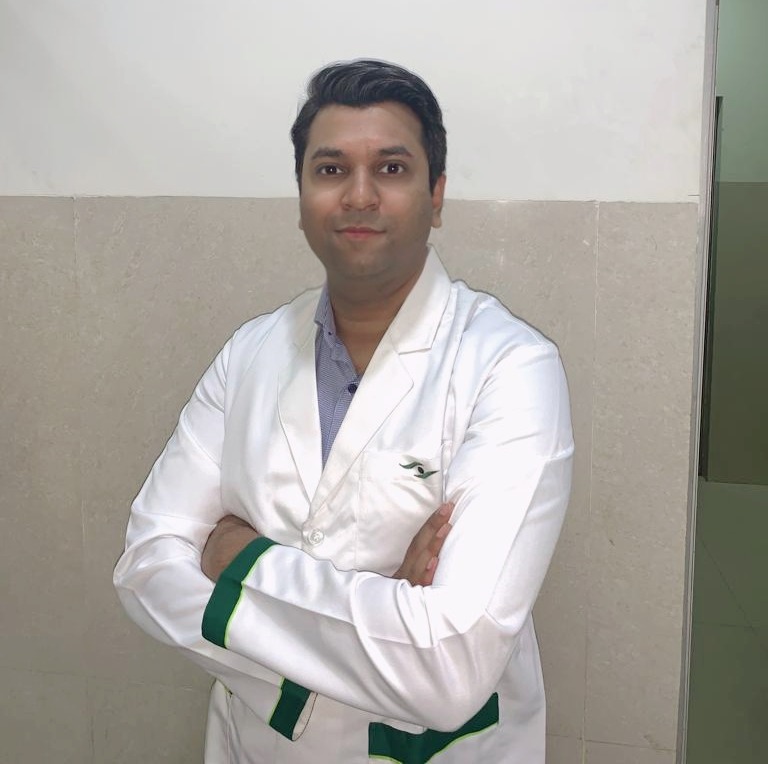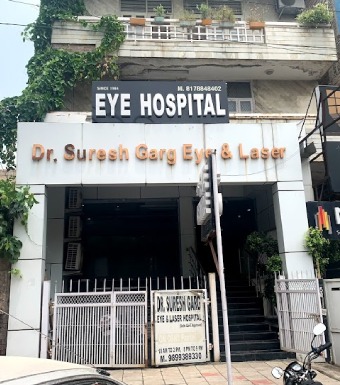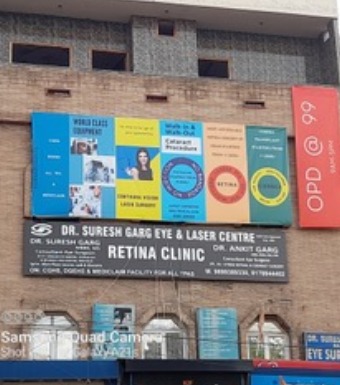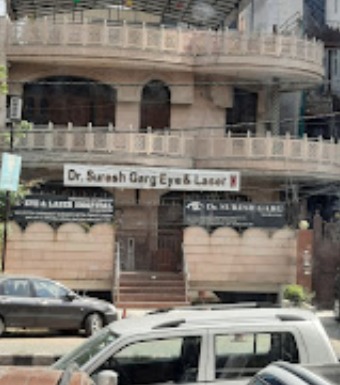About Surgery
Cornea Surgery in Delhi NCR
Cornea Surgery in Delhi: The outermost clear layer of the eye is called the cornea. In the Indian subcontinent, corneal blindness contributes to 0.52% of total cases of blindness. Various disorders can affect the cornea, such as degenerations, dystrophies, and Keratoconus that cause whitening or abnormal shape of the cornea. To address these disorders, treatment strategies include Corneal Transplant surgery, Auto-grafting for Pterygium, and Corneal Collagen Cross-linking with Riboflavin (C3R) for Keratoconus. The cornea is a transparent part of the eye that allows light to enter and helps in clear vision.
It is also very sensitive and contains many nerves that respond to pain or touch. Additionally, the cornea acts as the eye’s first line of defense against infections by foreign bodies. At Dr. Suresh Garg Eye Centre, we have a specialized team of cornea experts dedicated to providing exceptional care for the protection of your vision.
- Affordable Pricing
- World Class Equipements
- Complete Care
- 36+ Years Of Experience
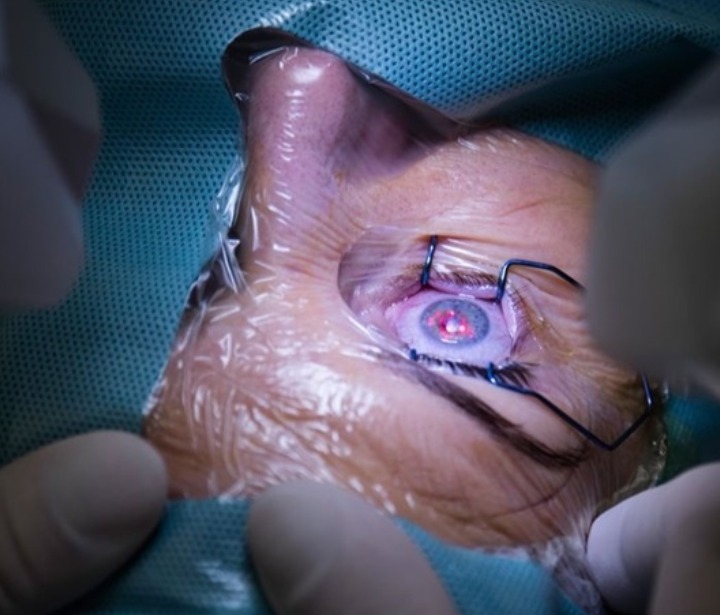
Services
Our Services
We also offer the following additional treatments as part of our reputed Cornea Services:
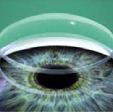
01
Corneal Transplantation
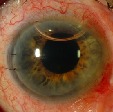
02
Lamellar Keratoplasty
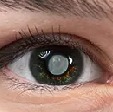
03
Descemet’s Stripping Automated Endothelial Keratoplasty (DSAEK)

04
Pterygium Surgery
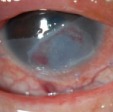
05
Amniotic Membrane Graft
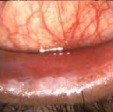
06
Mucous Membrane Graft
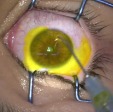
07
Collagen Cross-linking
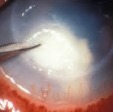
08
Ulcer Scrapping & Microbiology
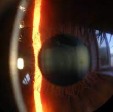
09
Slit Lamp Photography
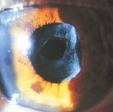
10
Bandage Contact Lens+ Anterior Stromal Puncture (BCL+ASP)
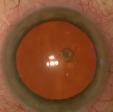
11
Tarsorrhaphy
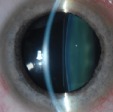
12
Tissue Adhesive + Bandage Contact Lens (TA+BCL)
40+
Years Of Experience

1M+
Patient Treated

100K+
Surgery Done

3+
Centers
Know more about Cornea surgery in Delhi NCR.
Signs You May Need Cornea Surgery in Delhi
The cornea is the clear, dome-shaped surface that covers the front of the eye. It plays a vital role in focusing light that enters the eye to create a clear vision. However, certain eye conditions or injuries can damage the cornea and require surgical intervention. Here are some signs that may indicate the need for cornea surgery:
Blurred or distorted vision: If your vision is blurry or distorted, even with glasses or contact lenses, it may indicate that your cornea is damaged or irregularly shaped.
Eye pain: Cornea damage can cause eye pain, discomfort, or sensitivity to light. If you experience persistent eye pain or discomfort, it’s essential to get it evaluated by an eye doctor.
Corneal ulcers: Corneal ulcers are open sores on the cornea that can cause pain, redness, and sensitivity to light.
Keratoconus: Keratoconus is a progressive eye condition that causes the cornea to thin and bulge into a cone shape, leading to distorted vision.
Corneal dystrophies: Corneal dystrophies are genetic disorders that cause the cornea to become cloudy or opaque, leading to vision loss.
Benefits of Cornea Surgery Hospital in Delhi
Cornea surgery can provide numerous benefits to individuals with various eye conditions or injuries that affect the cornea. Here are some of the potential benefits of cornea surgery:
Improved vision: The primary goal of most cornea surgeries is to improve vision. Procedures such as corneal transplant, refractive surgery, and intacs implantation can help correct vision problems such as nearsightedness, farsightedness, and astigmatism, as well as improve overall visual acuity.
Reduced pain and discomfort: Cornea damage can cause eye pain, discomfort, and sensitivity to light. Cornea surgery can help reduce or eliminate these symptoms, improving the quality of life for the individual.
Treatment of corneal diseases: Cornea surgery can help treat various corneal diseases, such as keratoconus, corneal dystrophies, and corneal ulcers, that can cause vision loss or damage to the eye.
Improved appearance: Cornea surgery can also improve the appearance of the eye in cases where the cornea is scarred or damaged.
Long-lasting results: In many cases, cornea surgery provides long-lasting results, reducing or eliminating the need for ongoing treatment or corrective lenses.
Improved quality of life: By improving vision, reducing pain and discomfort, and treating corneal diseases, cornea surgery can greatly improve an individual’s quality of life.
What are the symptoms of Cornea Disease?
Corneal diseases refer to a variety of conditions that can affect the cornea, the clear, dome-shaped surface that covers the front of the eye. The symptoms of the corneal disease can vary depending on the specific condition, but here are some common signs and symptoms to look out for:
- Blurred or distorted vision
- Sensitivity to light
- Eye redness
- Eye pain
- Excessive tearing
- Eye discharge
- Halos around lights
- Decreased visual acuity
It’s important to note that these symptoms can also be indicative of other eye conditions, so it’s essential to see an eye doctor if you experience any of these symptoms. Early detection and treatment of corneal disease can help prevent further damage and preserve vision.
How long does it take to recover from cornea surgery?
The recovery time after cornea surgery can vary depending on the type of surgery performed and the individual’s overall health.
Corneal transplant: After a corneal transplant, it can take several months for the eye to fully heal and for vision to stabilize. The initial recovery period typically lasts for several weeks, during which time the individual may experience some discomfort, sensitivity to light, and blurry vision. It’s important to avoid rubbing or putting pressure on the eye during the recovery period and to follow the doctor’s instructions for using eye drops and avoiding strenuous activities.
Refractive surgery: Recovery time after refractive surgery, such as LASIK or PRK, is usually relatively short. Most people can resume normal activities, including driving and work, within a few days to a week after surgery. However, it may take several weeks for the eyes to fully heal and for vision to stabilize. Eye drops and follow-up appointments with the surgeon are typically needed during the recovery period.
Intacs implantation: Recovery after Intacs implantation is usually quick, with most people able to resume normal activities within a few days of surgery. The eye may be sore and sensitive to light for a few days, and eye drops may be prescribed to help with healing.
Is corneal surgery safe?
Corneal surgery is generally considered safe and effective, with a high success rate in improving vision and treating corneal disease. However, like any surgical procedure, there are risks and potential complications that should be considered before undergoing the surgery.
Common risks associated with corneal surgery include infection, inflammation, bleeding, and problems with healing. In some cases, the surgery may not achieve the desired outcome, and additional surgeries or treatments may be needed. Additionally, some people may experience side effects such as dry eye, halos, glare, or fluctuations in vision following the surgery.
The risk of complications can vary depending on the specific type of corneal surgery, the individual’s overall health, and other factors. It’s important to discuss the risks and benefits of the surgery with an experienced eye surgeon and to follow all pre-and post-operative instructions carefully to minimize the risk of complications.
Overall, corneal surgery can be a safe and effective option for improving vision and treating corneal disease, but it’s important to make an informed decision and to have realistic expectations for the outcome of the surgery.
Our Doctors
Our Best Doctors
Confused about what’s best for you?
We are happy to help!
Book An Appointment CALL US +918178538850 View TestimonialsSearching for the Ideal Eye Hospital for Cornea Surgery in Delhi?
There are several reasons why Dr. Suresh Garg Eye Hospital in Delhi is an excellent choice for Cornea Surgery in Delhi:
Expertise: The hospital has a team of highly qualified and experienced eye specialists who are experts in cornea surgery. They have years of experience and are well-equipped to handle any kind of cornea-related problem.
State-of-the-art technology: The hospital is equipped with the latest technology and equipment to provide the best possible care to its patients.
Comprehensive care: Dr. Suresh Garg Eye Hospital provides comprehensive eye care services, including diagnosis, treatment, and aftercare.
Reputation: The hospital has a reputation for providing excellent eye care services and has been recognized by several national and international organizations for its contribution to the field of ophthalmology.
Affordable: Despite providing top-quality eye care services, Dr. Suresh Garg Eye Hospital is known for its affordable pricing, making it accessible to a wider range of patients.

40+ Years of
Experience
About Hospital
Welcome To Dr. Suresh Eye & Laser Hospital
Dr. Suresh Garg – Eye & Laser Hospital is a leading eye care center located in Delhi, India. The hospital is known for its state-of-the-art facilities and advanced treatments for a wide range of eye problems including cataract surgery, refractive surgery, glaucoma treatment, corneal transplantation, pediatric ophthalmology, and oculoplastic surgery.
Contact UsAppointment
Make an Appointment
Mr. Ali Baba From Nigeria
I was finally able to see thanks to the surgery done by Dr. Ankit Garg. He patiently counseled us about every step and made us feel we were In good hands.
Prakant Aggarwal
Dr. Suresh Garg is the best doctor for eyes-related issues. He has immense knowledge about eye disease & surgeries and is really helpful. He does not hide anything from patients.
Arika Vohra
I will highly recommend dr suresh sir for eye-related problems. Not only he sees patients with respect and patience but also treats them with a great human touch. He has immense knowledge and experience in his field.
Parth Aggarwal
An experienced eye doctor with empathy for his patients. I consult him for all my and my family's eye problems.
Jyoti Singh
Very good facilities and Doctor also very understanding and genius, staff's are so cooperative.
Sonia Gupta
Well-trained staff with all necessary facilities available for a complete eye examination. satisfied with the treatment received.
Read all the FAQ
Helping Patients From Around the Globe!
Cornea Surgery in Delhi refers to a variety of surgical procedures that are used to treat corneal disease or improve vision by reshaping the cornea. The specific type of surgery used will depend on the individual’s needs and the underlying condition.
Cornea Surgery in Delhi can be used to treat a range of conditions, including corneal scarring, keratoconus, corneal dystrophy, corneal ulcers, and other types of corneal disease. It can also be used to correct refractive errors, such as nearsightedness, farsightedness, and astigmatism.
The specific technique used will depend on the type of surgery being performed. In general, cornea surgery involves making a small incision in the cornea and using specialized instruments to reshape or remove damaged tissue. In some cases, a donor cornea may be transplanted to replace damaged tissue.
Most cornea surgeries are performed under local anesthesia, so the individual should not feel any pain during the procedure. However, some discomfort and sensitivity may be experienced in the days following the surgery, and pain medications may be prescribed to manage this.
The recovery time can vary depending on the type of surgery performed and the individual’s overall health. Some people may be able to return to normal activities within a few days, while others may need several weeks or months to fully recover.
Cornea Surgery in Delhi: Like any surgical procedure, cornea surgery carries some risks, including infection, inflammation, bleeding, and problems with healing. Additionally, some people may experience side effects such as dry eye, halos, glare, or fluctuations in vision following the surgery.
Cornea surgery can be an effective way to improve vision in people with corneal disease or refractive errors. However, the extent of improvement will depend on the specific type of surgery performed and the individual’s unique circumstances.
Cornea Surgery in Delhi: Your doctor will provide specific instructions for preparing for the surgery, but in general, you may be asked to avoid certain medications or activities before the procedure. It’s important to follow these instructions carefully to minimize the risk of complications.


